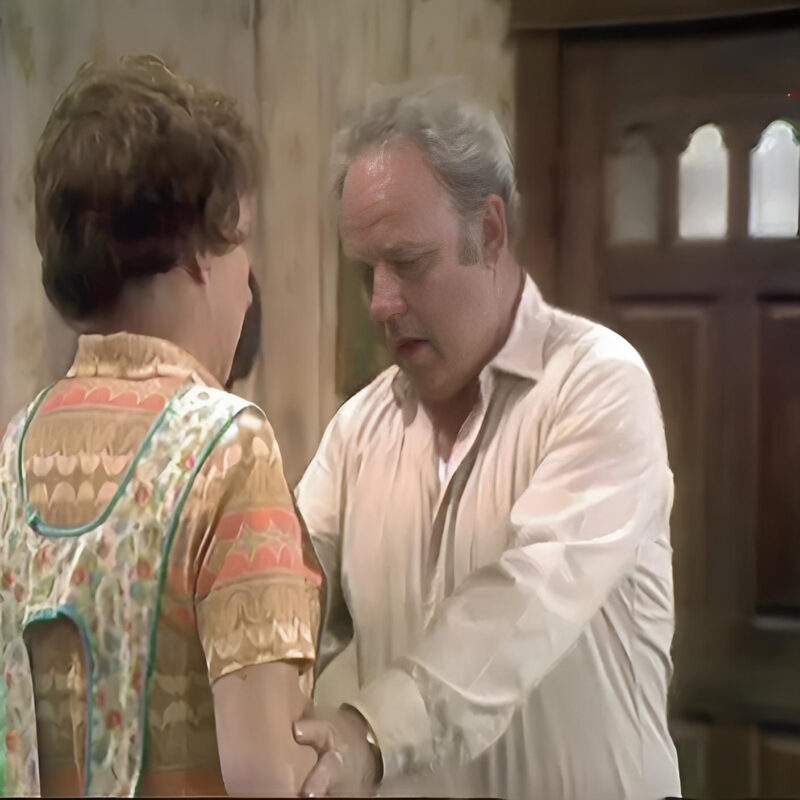
Norman Lear has played a pivotal role in defining the American television sitcom. With an acute awareness of the evolving cultural landscape, Lear aspired to launch a sitcom about a working-class family in the 1960s. However, his big break came in 1971 when CBS picked up All in the Family.
Running until 1979, the series followed the Bunker family living in Queens, New York. Despite its popularity and spawning seven spin-offs, the show experienced significant behind-the-scenes turmoil.
The Appeal of All in the Family
Set at the dawn of the 1970s, a decade of profound change for Americans, All in the Family showcased the generational divide. Patriarch Archie Bunker (Carroll O’Connor) was a narrow-minded, racist, and bigoted man struggling to cope with the societal shifts of the time.
The show also featured matriarch Edith (Jean Stapleton), a sweet and gentle woman often overwhelmed by anxiety. The series centered on Archie and Edith’s feminist daughter Gloria (Sally Struthers) and her husband Michael Stivic (Rob Reiner), whose liberal views frequently clashed with Archie’s.
When the show premiered, the Season 1 ratings were abysmal. However, it gained a massive audience during summer reruns between the first two seasons. The series’ willingness to tackle controversial subjects like racism, infidelity, homosexuality, rape, religion, miscarriages, abortion, breast cancer, and the Vietnam War resonated with younger viewers.
Behind the Scenes: Carroll O’Connor’s Difficult Nature
Despite its success, O’Connor was reportedly challenging to work with. In 1999, he revealed that he had rewritten the entire pilot episode because he thought it was terrible.
“I rewrote the script all in pencil,” O’Connor explained to the Television Academy Foundation in 1999. “I had no typist, so I recorded the entire script on tape, playing all the parts—Edith, the Meathead, Archie, and the Black kid from next door. I gave that tape to Norman. He put it on a machine, played it, and then gave it to his secretary to transcribe. That’s the script we used.”
From that point on, O’Connor frequently made edits, changes, and criticisms of Lear and the writers. “As difficult and often abusive as Carroll could be, his portrayal of Archie made up for it, and I could kiss his feet after every performance,” Lear said.
Edith’s Departure from All in the Family
By the final season, Edith appeared less frequently on screen. Stapleton feared being typecast in submissive roles, so she began guest-starring instead of appearing as a series regular.
After appearing in only four episodes in the final season, Lear agreed to kill Edith off the series. “To me, she isn’t [fictional],” Lear said before finally agreeing, as reported by The Television Academy.
Stapleton went on to star in numerous projects, including You’ve Got Mail and Everybody Loves Raymond, before her death in 2013.
The Enduring Impact
All in the Family remains a cornerstone of television history, a testament to Norman Lear’s vision and the unforgettable characters brought to life by its talented cast. The show’s legacy endures not just through its original run but also through its spin-offs and the indelible mark it left on American culture.
